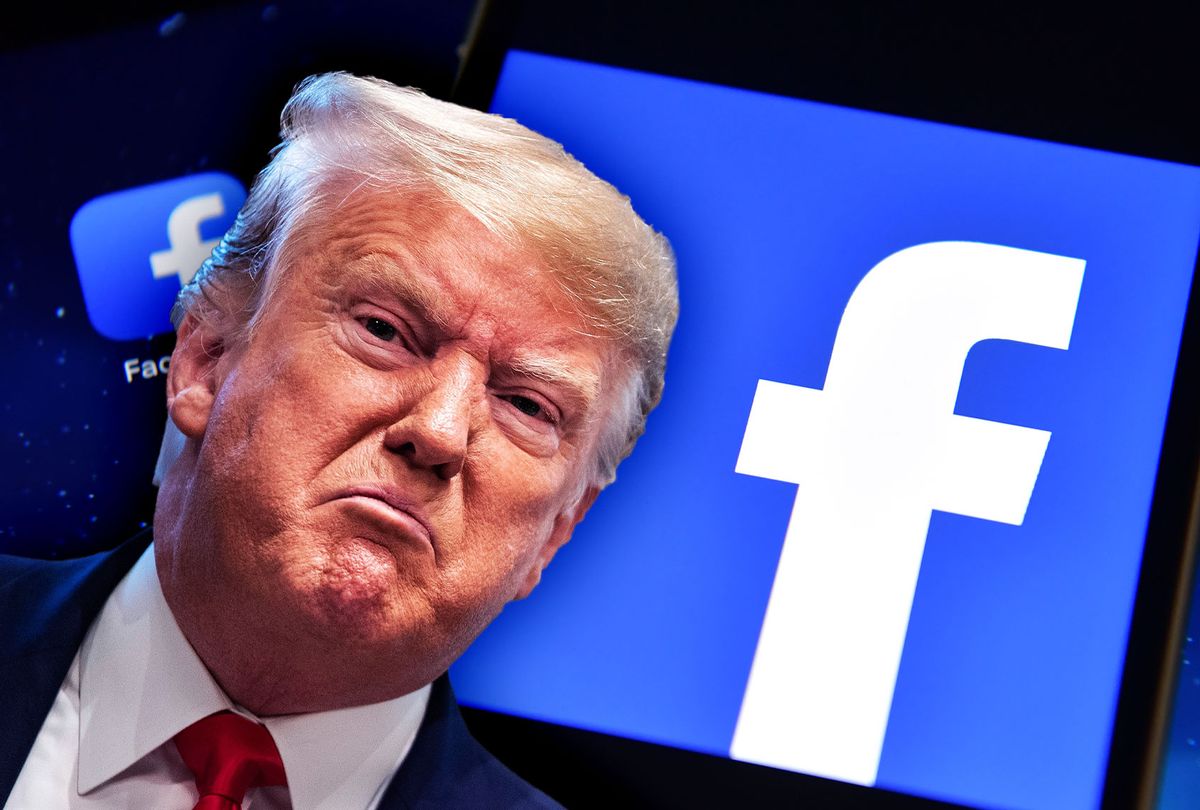Former President Donald Trump's ban from the social media site Facebook will last at least two years, the company announced on Friday.
The news puts a more concrete timeline on the ex-president's suspension from the company's services, which was instituted following the Jan. 6 insurrection over, in the company's words, a "risk of ongoing violence" that could be caused by his posts.
Trump will be eligible to apply for reinstatement in 2023.
"Given the gravity of the circumstances that led to Mr. Trump's suspension, we believe his actions constituted a severe violation of our rules which merit the highest penalty available under the new enforcement protocols," Nick Clegg, Facebook's vice president of global affairs, wrote in a blog post.
"When the suspension is eventually lifted, there will be a strict set of rapidly escalating sanctions that will be triggered if Mr. Trump commits further violations in future, up to and including permanent removal of his pages and accounts," he added.
A graph accompanying the statement outlines "heightened penalties for public figures during times of civil unrest and ongoing violence," including suspensions of one month, six months, one year and two years.
It was the latest in a string of high-profile headlines the social media giant's moderation policies made this week. Facebook also reportedly plans to end a controversial policy that shields politicians and public officials from the same rules that apply to the site's other users. It's a move that could have massive ramifications for politics around the world.
Accordingly, Facebook may be looking at crackdowns on several world leaders, including Trump pals Jair Bolsonaro, the president of Brazil, and Narendra Modi, the prime minister of India. The politicians have been criticized for sharing misinformation on the platform.
Both policy changes come after a scathing critique of the company's often opaque moderation rules from "The Oversight Board," an independent group created by Facebook to review its content policies. Though last month's ruling affirmed the company's decision to ban Trump, it blasted the indefinite nature and foggy reasoning behind the move. Further, it criticized Facebook's carve-out that treats content posted by public figures as different from everyone else.
Giving in to those suggestions represents a stunning change of course for Facebook. Founder Mark Zuckerberg has maintained for years that the company should not police speech by politicians.
Twitter made a similar shift back in January when it permanently banned Trump from his favorite and most effective platform. The former president has since started, and subsequently shuttered, a blog in which he shared tweet-length thoughts seemingly intended to be shared on social media. Both Facebook and Twitter engaged in a Sisyphean game of whac-a-mole to scrub any copy-and-pasting of the posts from their sites.
In a statement to The New York Times, Trump said Facebook's Friday ruling was "an insult to the record-setting 75M people, plus many others, who voted for us in the 2020 Rigged Presidential Election." He also added that the company should not be allowed to continue "censoring and silencing" him.



Shares